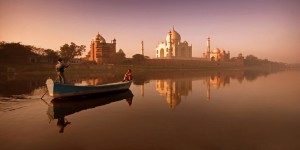When people think about India, what crosses their mind and defines their understanding of India? But why it is important to discuss about people’s perceptions about India? Should India care about it? A country’s reputation determines the way people, inside and outside the country, feel and relate to it. In the globalized world, a country’s image has become a decisive factor in social, political and economic relations in the world. States are gradually acknowledging the significance of national reputation for investment and economic development.
In the age of public diplomacy, it’s not only that the perception of government matters, but the perception of the people or rather public opinion regarding a country occupies a significant place in world politics. It is not just about popularity or making your presence felt, but closer to being seen in a positive light. Strong and famous don’t necessarily mean positive: North Korea, Iraq and few other countries have strong and famous reputations but definitely not positive ones.
Simon Anholt has rightly described the world as one market, where every country, every religion and every city must compete with each other for its share of the world’s consumers, tourists, investors, students, entrepreneurs etc. for the attention and respect of the international media, with other governments and the people of other countries. And, to rule this market, a country has to present itself as a positive brand to strengthen the identity and self-esteem of the citizen; increase political influence; and erase misconception and negative stereotypes about it. “Branding efforts have branched out well beyond simple efforts at attracting tourism. Countries now hire firms to help them launch sophisticated branding campaigns aimed at luring foreign investment, facilitating trade, improving private-sector competitiveness, or even securing geopolitical influence.” Further, they are working to upgrade their infrastructure to make it favourable for investors in order to fetch more investment.
Defining India’s global reputation
From the beginning India set up its image as an independent and emerging power by not aligning with any of the superpower during the cold war, underlining sovereign determination and rejecting interference by some other country. It hence came across as a firm leader of the decolonized states. Over the course of time, by opening its economy in the 1990s, India made its positive presence felt in the economic sector as well. But these positive global images weren’t left unchallenged. They were highly challenged at domestic front in the cultural dimension where India remained a place of religious contentions and violence.
Eventually India created a brand for itself by breaking stereotypes of backwardness through its military might, political influence, technological advances and most importantly its cultural power. Culturally beside Bollywood, yoga also enhances India’s reputation. On June 21, the celebration of the 1st International Day of Yoga underscored India’s cultural contribution to the world. But like earlier there have been negative reports, adversely impacting the country’s reputation. BBC documentary ‘India’s Daughter’ questions the societal structure and India’s outlook towards women, which created a wave of generalisations about India not being safe for women. In the last few months, India’s image faced another jolt when ‘Incredible India’ became intolerable India. A country which stand proud on the pillar of secularism began to be seen by some as intolerant of religious minorities, casting a shadow over its secular credentials.
Re-branding India
Therefore, to regain its image and leverage it for the political and economic influence in the world, India needs to concentrate on three elements. Firstly, it has to emphasize on the positive advances of the country to form an overall image. But, it doesn’t mean that it has to construct that it is not, but to demonstrate the world, what it is. Secondly, in the age of social media there is an overflow of information, which is not always reliable. And, endless repetitions of a wrong piece of information makes it appear true; thus, it is important to re-activate the sources of authentic information about country to diminish stereotypes and misconceptions. And, finally, it is important to tackle the existing issues, rather than pushing them under the carpet. It is necessary to solve these issue from the root cause, instead of letting them affect the discourse of national image and reputation. For that, India must address domestic issues positively, bringing favourable outcome for those involved. This will further create peace domestically and ensures the strengthening of India’s influence in the world market.
The game of power struggle is not new in world politics, and so is India as its prominent player. But, in the contemporary world, power has become more about perception and influence than weapons and economic advances. Hence, this shift in the world scenario makes it mandatory for India to re-emphasis on its influential soft power.
(The author is a YFFP Jindal Foreign Policy Fellow).
Author Profile
- India Writes Network (www.indiawrites.org) is an emerging think tank and a media-publishing company focused on international affairs & the India Story. Centre for Global India Insights is the research arm of India Writes Network. To subscribe to India and the World, write to editor@indiawrites.org. A venture of TGII Media Private Limited, a leading media, publishing and consultancy company, IWN has carved a niche for balanced and exhaustive reporting and analysis of international affairs. Eminent personalities, politicians, diplomats, authors, strategy gurus and news-makers have contributed to India Writes Network, as also “India and the World,” a magazine focused on global affairs.
Latest entries
 DiplomacyJanuary 5, 2026India walks diplomatic tightrope over US operation in Venezuela
DiplomacyJanuary 5, 2026India walks diplomatic tightrope over US operation in Venezuela India and the WorldNovember 26, 2025G20@20: Africa’s Moment – The Once and Future World Order
India and the WorldNovember 26, 2025G20@20: Africa’s Moment – The Once and Future World Order DiplomacyOctober 4, 2025UNGA Resolution 2758 Must Not Be Distorted, One-China Principle Brooks No Challenge
DiplomacyOctober 4, 2025UNGA Resolution 2758 Must Not Be Distorted, One-China Principle Brooks No Challenge India and the WorldJuly 26, 2025MPs, diplomats laud Operation Sindoor, call for national unity to combat Pakistan-sponsored terror
India and the WorldJuly 26, 2025MPs, diplomats laud Operation Sindoor, call for national unity to combat Pakistan-sponsored terror








